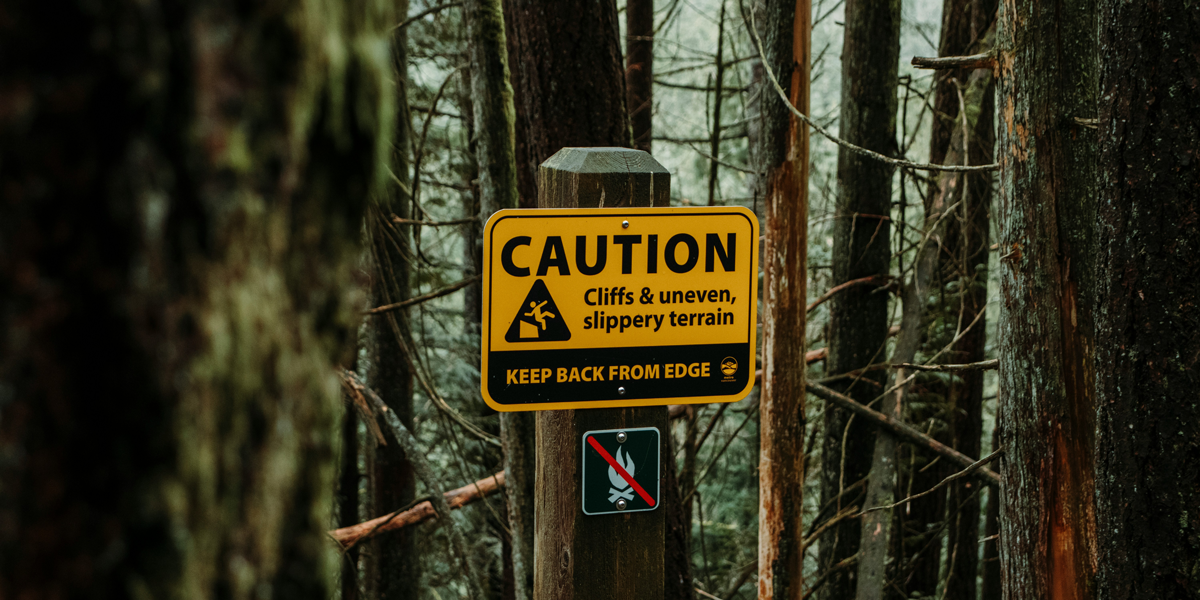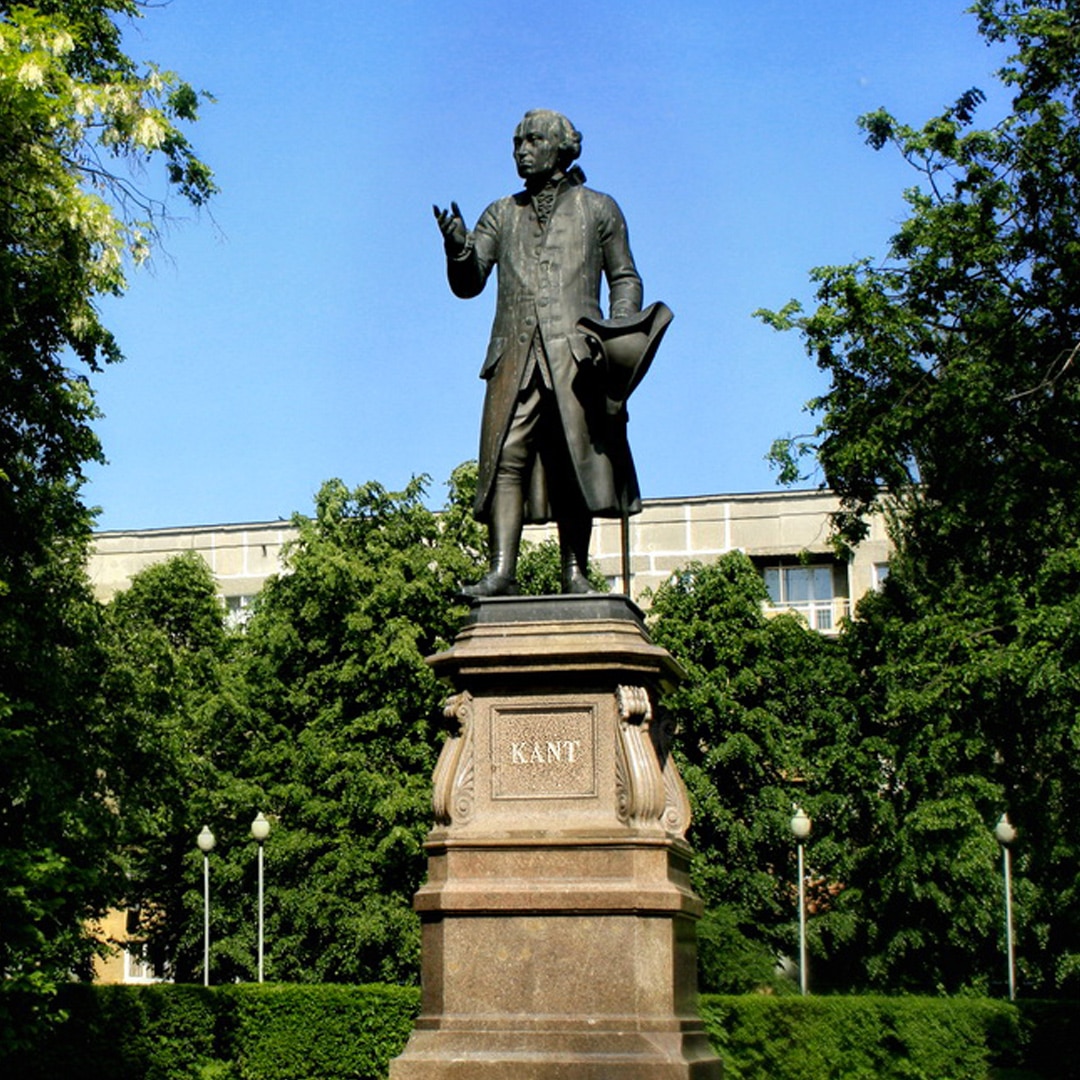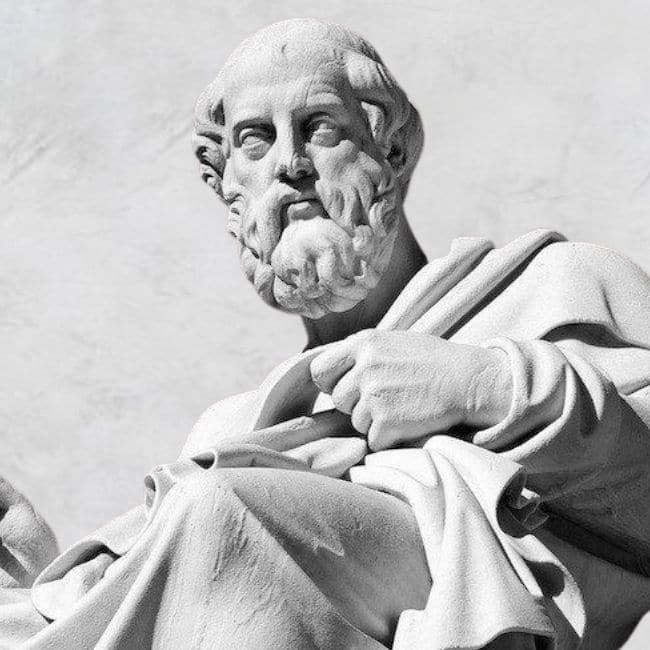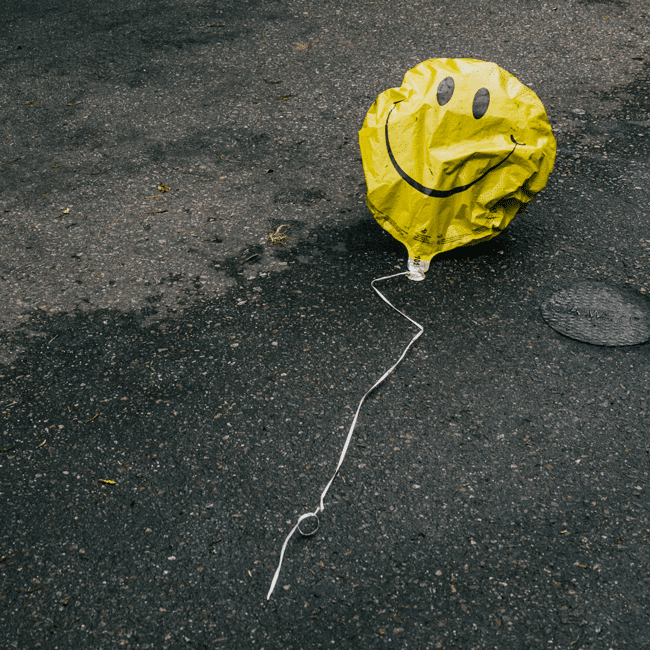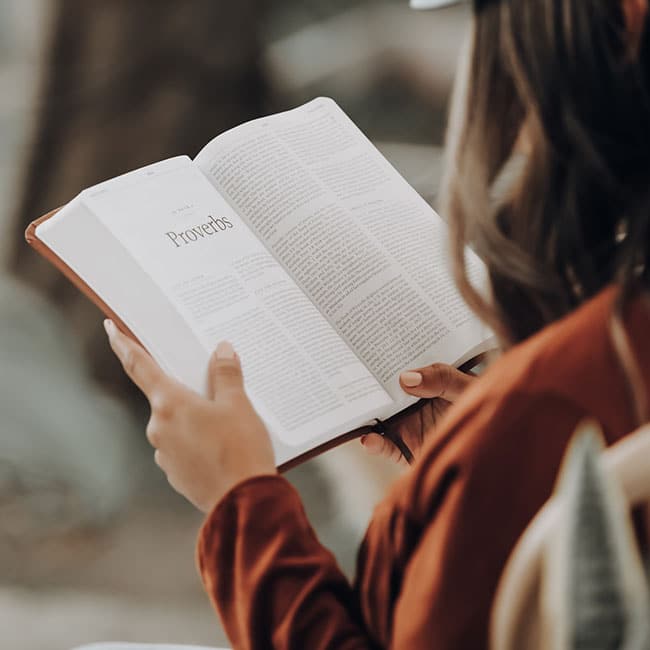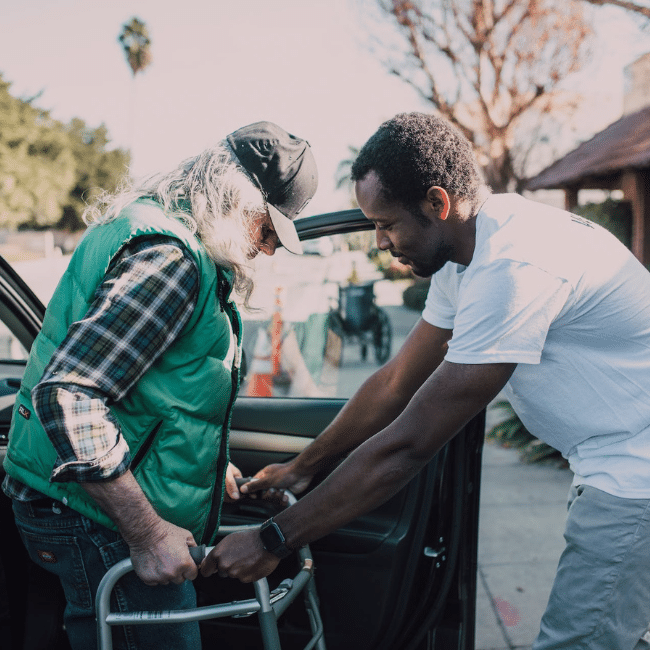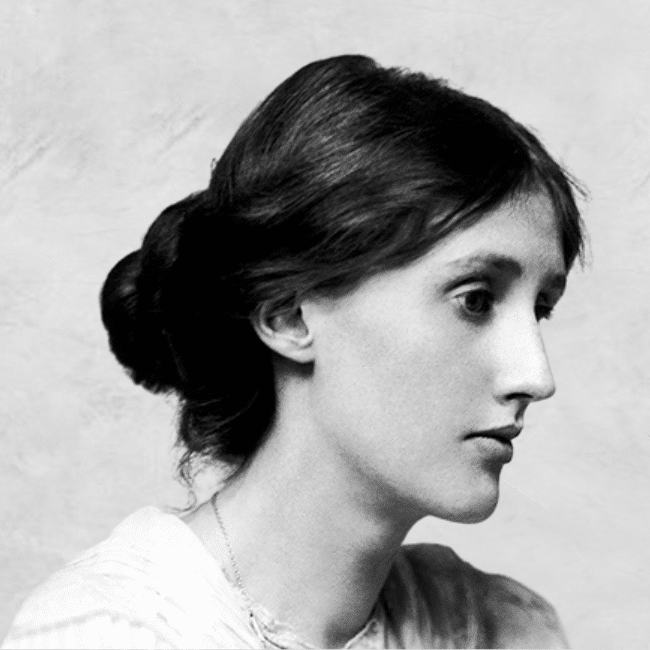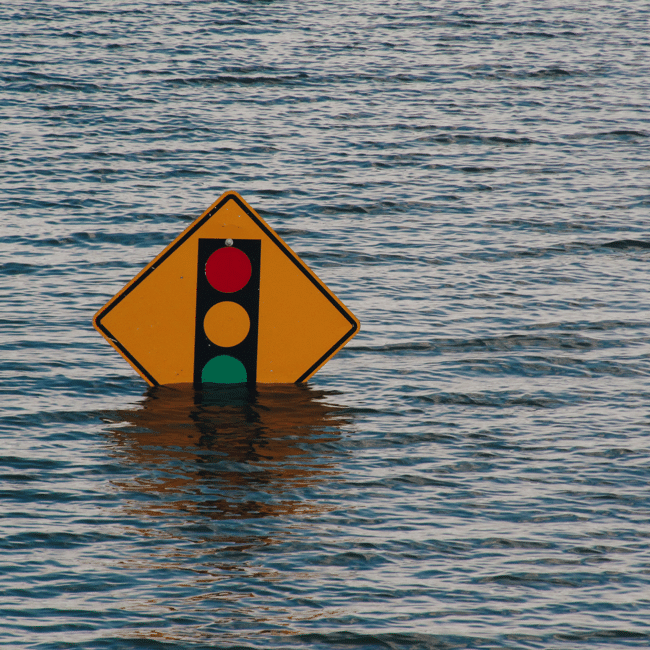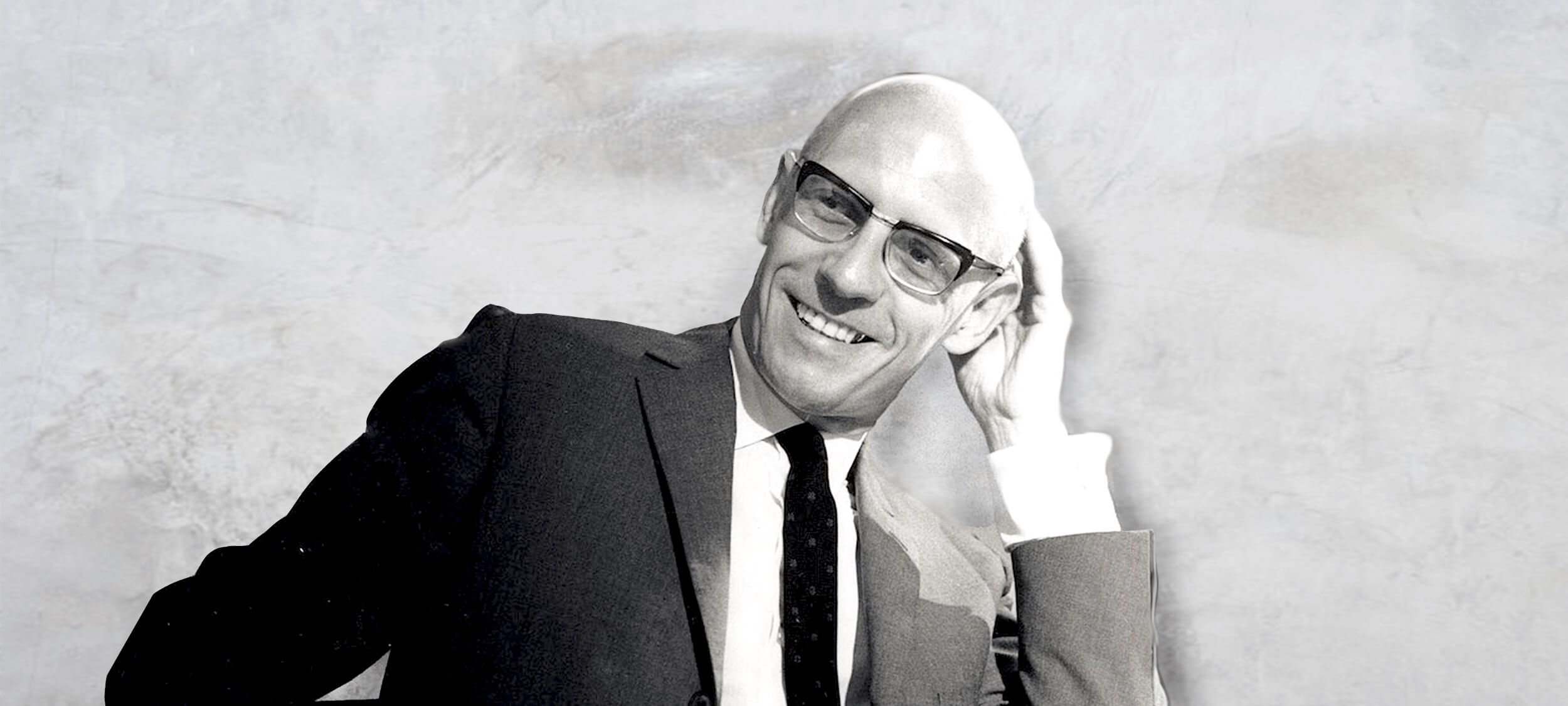Five subversive philosophers throughout the ages

Philosophy helps us bring important questions, ideas and beliefs to the table and work towards understanding. It encourages us to engage in examination and to think critically about the world.
Here are five philosophers from various time periods and walks of life that demonstrate the importance and impact of critical thinking throughout history.
Ruha Benjamin
Ruha Benjamin (1978–present), while not a self-professed philosopher, uses her expertise in sociology to question and criticise the relationship between innovation and equity. Benjamin’s works focus on the intersection of race, justice and technology, highlighting the ways that discrimination is embedded in technology, meaning that technological progress often heightens racial inequalities instead of addressing them. One of the most prominent of these is her analysis of how “neutral” algorithms can replicate or worsen racial bias because they are shaped by their creators’ (often unconscious) biases.
“The default setting of innovation is inequity.”
J. J. C. Smart
J.J.C. Smart (1920-2012) was a British-Australian philosopher with far-reaching interests across numerous subfields of philosophy. Smart was a Foundation Fellow of the Australian Academy of the Humanities at its establishment in 1969. In 1990, he was awarded the Companion in the General Division of the Order of Australia. In ethics, Smart defended “extreme” act utilitarianism – a type of consequentialism – and outwardly opposed rule utilitarianism, dubbing it “superstitious rule workshop”, contributing to its steadily decline in popularity.
“That anything should exist at all does seem to me a matter for the deepest awe. But whether other people feel this sort of awe, and whether they or I ought to, is another question. I think we ought to.”
Elisabeth of the Bohemia
Princess Elisabeth of Bohemia (1618–1680) was a philosopher who is best known for her correspondence with René Descartes. After meeting him while he was visiting in Holland, the two exchanged letters for several years. In the letters, Elisabeth questions Descartes’ early account of mind-body dualism (the idea that the mind can exist outside of the body), wondering how something immaterial can have any effect on the body. Her discussion with Descartes has been cited as the first argument for physicalism. In later letters, her criticisms prompted him to develop his moral philosophy – specifically his account of virtue. Elisabeth has featured as a key subject in feminist history of philosophy, as she was at once a brilliant and critical thinker, while also having to live with the limitations imposed on women at the time.
“Inform your intellect, and follow the good it acquaints you with.”
Socrates
Socrates (470 BCE–399 BCE) is widely considered to be one of the founders of Western philosophy, though almost all we know of him is derived from the work of others, like Plato, Xenophon and Aristophanes. Socrates is known for bringing about a huge shift in philosophy away from physics and toward practical ethics – thinking about how we do live and how we should live in the world. Socrates is also known for bringing these issues to the public. Ultimately, his public encouragement of questioning and challenging the status quo is what got him killed. Luckily, his insights were taken down, taught and developed for centuries to come.
“The unexamined life is not worth living.”

Francesca Minerva
Francesca Minerva is a contemporary bioethicist whose work includes medical ethics, technological ethics, discrimination and academic freedom. One of Minerva’s most controversial (if misunderstood) contributions to ethics is her paper, co-written with Alberto Giubilini in 2012, titled “After-birth Abortion: why should the baby live?”. In it, the pair argue that if it’s permissible to abort a foetus for a reason, then it should also be permissible to “abort” (i.e., euthanise) a newborn for the same reason. Minerva is also a large proponent of academic freedom and co-founded the Journal of Controversial Ideas in an effort to eliminate the social pressures that threaten to impede academic progress.
“The proper task of an academic is to strive to be free and unbiased, and we must eliminate pressures that impede this.”
BY The Ethics Centre
The Ethics Centre is a not-for-profit organisation developing innovative programs, services and experiences, designed to bring ethics to the centre of professional and personal life.
Making the tough calls: Decisions in the boardroom

Making the tough calls: Decisions in the boardroom
Opinion + AnalysisBusiness + Leadership
BY The Ethics Centre 11 NOV 2021
The scenario is familiar to us all. Company X is in crisis. A series of poor management decisions set in motion a sequence of events that lead to an avalanche of bad headlines and public outcry.
When things go wrong for an organisation – so wrong that the carelessness or misdeeds revealed could be considered ethical failure – responsibility is shouldered by those who are the final decision makers. They are and should be held accountable.
Boards of organisations, and the individual directors that comprise them, collectively make decisions about strategy, governance and corporate performance. Decisions that involve the interests of shareholders, employees, customers, suppliers and the wider community. They will also involve competing values, compromises and tradeoffs, information gaps and grey areas.
In the recent 2021 Future of the Board report from The Governance Institute of Australia, respondents were surveyed to consider the most valued attributes for future board directors. Strategic and critical thinking were once again ranked the highest, closely followed by the values of ethics and culture as the two most important areas that boards need to focus on to prevent corporate failure. A culture of accountability, transparency, trust and respect were viewed as a top factor determining a healthy dynamic between boards and management.
Ethics plays a central role in the decisions that face Boards and directors, such as:
- What constitutes a conflict of interest and how should it be managed?
- How aggressive should tax strategies be?
- What incentive structures and sales techniques will create a healthy and ethical organisational culture?
- What about investments in organisations that profit from arms and weaponry?
- How should organisations manage the effects technology has on their workforce?
- What obligation do organisations have to protect the environment and human rights?
Together, The Australian Institute of Company Directors (AICD) and The Ethics Centre have developed a decision-making guide for directors.
Ethics in the Boardroom provides directors with a simple decision-making framework which they can use to navigate the ethical dimensions of any decision. Through the insights of directors, academics and subject matter experts, the guide also provides four lenses to frame board conversations. These lenses give directors the best chance of viewing decisions from different perspectives. Rather than talking past each other, they will help directors pinpoint and resolve disagreement.
- Lens 1: General influences – Organisations are participants in society through the products and services they offer and their statuses as employers and influencers. The guide invites directors to seek out the broadest possible range of perspectives to enhance their choices and decisions. It also suggests that organisations should strive for leadership. What do you think about companies that take a stance on matters like climate change and same sex marriage?
- Lens 2: The board’s collective culture and character – In ethical decision making, directors are bound to apply the values and principles of their organisation. As custodians, they must ensure that culture and values are aligned. The guide invites directors to be aware that ethical decision-making in the boardroom must be tempered. Decision making shouldn’t be driven by: form over substance, passion over reason, collegiality over concurrence, the need to be right, or legacy. Just because a particular course of action is legal, does that make it right? Just because a company has always done it that way, should they continue?
- Lens 3: Interpersonal relationships and reasoning – Boards are collections of individuals who bring their own individual decision-making ‘style’ to the board table. Power dynamics exist in any group, with each person influencing and being influenced by others. Making room for diversity and constructive disagreement is vital. How can chairs and other directors empower every director to stand up for what is right? How do boards ensure that the person sitting quietly, with deep insights into ethical risk, has the courage to speak?
- Lens 4: The individual director – Directors bring their own wisdom and values to decision making. But they also might bring their own motivations that biases. The guide invites directors to self-reflect and bring the best of themselves to the board table. How can we all be more reflective in our own decision making?
This guide is a must-read for anyone who has an interest in the conduct of any board-led organisation. That includes schools, sports clubs, charities and family businesses as well as large corporations.
Behind each brand and each company, there are people making decisions that affect you as a consumer, employee and citizen. Wouldn’t you rather that those at the top had ethics at the front of their mind in the decisions that they make?
Click here to view or download a copy of the guide.
Ethics in your inbox.
Get the latest inspiration, intelligence, events & more.
By signing up you agree to our privacy policy
You might be interested in…
Explainer, READ
Business + Leadership
Ethics Explainer: Moral hazards
Opinion + Analysis
Business + Leadership
Political aggression worsens during hung parliaments
Opinion + Analysis
Business + Leadership, Relationships
It’s time to take citizenship seriously again
Opinion + Analysis
Business + Leadership, Science + Technology
MIT Media Lab: look at the money and morality behind the machine
BY The Ethics Centre
The Ethics Centre is a not-for-profit organisation developing innovative programs, services and experiences, designed to bring ethics to the centre of professional and personal life.
Ethics Explainer: Lying

Lying is something we’ve all done at some point and we tend to take its meaning for granted, but what are we really doing when we lie, and is it ever okay?
A person lies when they:
- knowingly communicate something false
- purposely communicate it as if it was true
- do so with an intention to deceive.
The intention to deceive is an essential component of lying. Take a comedian, for example – they might intentionally present a made-up story as true when telling a joke, engaging in satire, etc. However, the comedian’s purpose is not to deceive but to entertain.
Lying should be distinguished from other deviations from the truth like:
- Falsehoods – false claims we make while believing what we say to be true
- Equivocations – the use of ambiguous language that allows a person to persist in holding a false belief.
While these are different to lying, they can be equally problematic. Accidentally communicating false information can still result in disastrous consequences. People in positions of power (e.g., government ministers) have an obligation to inform themselves about matters under their control or influence and to minimise the spread of falsehoods. Having a disregard for accuracy, while it is not lying, should be considered wrong – especially when as a result of negligence or indifference.
The same can be said of equivocation. The intention is still there, but the quality of exchange is different. Some might argue that purposeful equivocation is akin to “lying by omission”, where you don’t actively tell a lie, but instead simply choose not to correct someone else’s misunderstanding.
Despite lying being fairly common, most of our lives are structured around the belief that people typically don’t do it.
We believe our friends when we ask them the time, we believe meteorologists when they tell us the weather, we believe what doctors say about our health. There are exceptions, of course, but for the most part we assume people aren’t lying. If we didn’t, we’d spend half our days trying to verify what everyone says!
In some cases, our assumption of honesty is especially important. Democracies, for example, only function legitimately when the government has the consent of its citizens. This consent needs to be:
- free (not coerced)
- prior (given before the event needing consent)
- informed (based on true and accessible information)
Crucially, informed consent can’t be given if politicians lie in any aspects of their governance.
So, when is lying okay? Can it be justified?
Some philosophers, notably Immanuel Kant, argue that lying is always wrong – regardless of the consequences. Kant’s position rests on something called the “categorical imperative”, which views lying as immoral because:
- it would be fundamentally contradictory (and therefore irrational) to make a general rule that allows lying because it would cause the concepts of lies and truths to lose their meaning
- it treats people as a means rather than as autonomous beings with their own ends
In contrast, consequentialists are less concerned with universal obligations. Instead, their foundation for moral judgement rests on consequences that flow from different acts or rules. If a lie will cause good outcomes overall, then (broadly speaking) a consequentialist would think it was justified.
There are other things we might want to consider by themselves, outside the confines of a moral framework. For example, we might think that sometimes people aren’t entitled to the truth in principle. For example, during a war, most people would intuit that the enemy isn’t entitled to the truth about plans and deployment details, etc. This leads to a more general question: in what circumstances do people forfeit their right to the truth?
What about “white lies”? These lies usually benefit others (sometimes at the liar’s expense!) or are about trivial things. They’re usually socially acceptable or at least tolerated because they have harmless or even positive consequences. For example, telling someone their food is delicious (even though it’s not) because you know they’ve had a long day and wouldn’t want to hurt their feelings.
Here are some things to ask yourself if you’re about to tell a white lie:
- Is there a better response that is truthful?
- Does the person have a legitimate right to receive an honest answer?
- What is at stake if you give a false or misleading answer? Will the person assume you’re telling the truth and potentially harm themselves as a result of your lie? Will you be at fault?
- Is trust at the foundation of the relationship – and will it be damaged or broken if the white lie is found out?
- Is there a way to communicate the truth while minimising the hurt that might be caused? For example, does the best response to a question about an embarrassing haircut begin with a smile and a hug before the potentially hurtful response?
Lying is a more complex phenomenon than most people consider. Essentially, our general moral aversion to it comes down to its ability to inhibit or destroy communication and cooperation – requirements for human flourishing. Whether you care about duties, consequences or something else, it’s always worth questioning your intentions to check if you are following your moral compass.
Ethics in your inbox.
Get the latest inspiration, intelligence, events & more.
By signing up you agree to our privacy policy
You might be interested in…
Opinion + Analysis
Relationships
Paralympian pay vs. Olympian pay
Opinion + Analysis
Relationships, Society + Culture
If we’re going to build a better world, we need a better kind of ethics
Opinion + Analysis
Society + Culture, Relationships
Discomfort isn’t dangerous, but avoiding it could be
Opinion + Analysis
Relationships, Science + Technology
The complex ethics of online memes
BY The Ethics Centre
The Ethics Centre is a not-for-profit organisation developing innovative programs, services and experiences, designed to bring ethics to the centre of professional and personal life.
Anti-natalism: The case for not existing
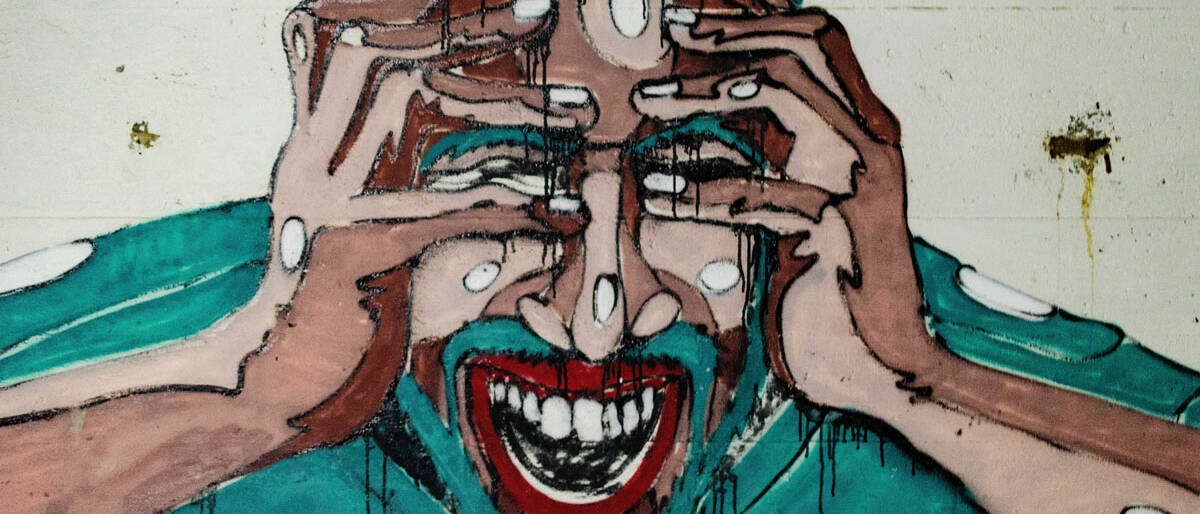
Partway through the New Yorker’s profile of leading philosopher David Benatar, there is an anecdote that sums up his ethical position neatly.
A colleague at Benatar’s university announces to the department that she is pregnant. Benatar is pushed by the colleague as to whether he is happy about the news. Benatar thinks, then replies: “I am happy,” he says. “For you.”
Benatar is a leading advocate for the philosophical school known as anti-natalism. For such thinkers, being born is a harm. As it is so cleanly put in the title of his best-known work, Benatar believes that for each of us, it would have been better for us to never have been – non-existence is preferable to existence. Benatar might be happy for his colleague, but he is not happy for the conceived child who now faces a future of pain, distress and fear.
For such a seemingly pessimistic outlook, Benatar’s arguments in favour of anti-natalism are shockingly elegant. Take, for instance, his foundational view: the asymmetry of pleasure and pain. According to Benatar, pain is bad; pleasure is good. An absence of pain is good. But an absence of pleasure is not bad for the person for whom that absence is not a deprivation.
Imagine, for instance, that one day, on a morning stroll, you encounter a branching path. You take the left road. A few metres ahead, you spot a $100 bill lying on the ground. This brings you a deep pleasure. But now let’s say that you never took the left road – that you instead veered right. In this possible world, you do not encounter the $100 bill. If you had taken the left path, you would have. But you don’t know that. You have not been promised any money; you are not aware of what you have lost. Thus, Benatar thinks, you have not been harmed.
This is the key to the anti-natalist position. The child who is never born does not know that they are missing out on the pleasures of life; there is no entity who has been deprived, because there is no entity that exists. Moreover, the child who is born might encounter these pleasures, but they will also encounter a great number of pains. For Benatar, life is a myriad of tiny, complicated discomforts, from being hungry to needing the bathroom. Not bringing a child into the world means avoiding the perpetuation of suffering, saving an entity from a long, painful life for which the only escape – suicide, death, illness – is more pain.
These views may sound, for some, deeply psychologically distressing, and Benatar acknowledges that these are not easy pills to swallow. But he believes that they are necessary truths; that they are, in a sense, inevitable conclusions to be drawn from the nature of being a conscious entity in the world.
“I think that there is something hopeless and psychologically distressing about the nature of sentient life that makes anti-natalism the correct position to hold,” he explains.
Benatar’s position has been criticised by a number of thinkers, most recently by the stoic philosopher Massimo Pigliucci, who argued against the asymmetry of pleasure and pain in a recent blog post. According to Pigliucci, pain need not be morally bad; pleasure need not be morally good. For the stoic, these are “indifferents”, their moral value neutral.
But Benatar believes that Pigliuicci has misattributed claims to him. “The asymmetry I describe is not itself a moral claim – even though it supports moral claims about the ethics of procreation,” he explains. “My claims about pain and pleasure are claims about their prudential value for the person whose pain and pleasure they are – or would be.”
“Anybody – and I am not suggesting that Professor Pigliucci is among them – who denies that pain is intrinsically bad for the person whose pain it is, and that pleasure is intrinsically good for the person whose pleasure it is, does not understand what pain and pleasure are, and how and why they arose evolutionarily. If pain does not feel bad, it is not pain. If pleasure does not feel good, it is not pleasure.”
Others still have compared Benatar’s positions to those held by ecofascists, thinkers who believe that humanity is a virus that is wreaking a havoc on the natural world, and that the only way to avoid this suffering is to force the extinction of the human race. Indeed, there is at least some overlap between ecofascist beliefs and anti-natalist ones – both argue in favour of the end of human life – but Benatar is untroubled by such a connection, for the same reason that “those of us opposed to smoking should not be troubled that the Nazis were also opposed to smoking.”
“Even though (some) anti-natalists think that humans are bad for the environment, this shows only that they agree with the ‘eco’ part of ‘ecofascism’,” Benatar explains. “Anti-natalists are not committed to the ‘fascism’ part – and should, I argue, be opposed to it.”
Benatar’s position might seem deeply cynical, even nihilistic, but there is a strange kind of hope in it too. “Part of the reason why some people may find anti-natalism unthinkable is that they cannot correctly imagine what a world without sentient life would be like,” he explains. For the anti-natalist, there is some comfort to be taken in this potential, consciousness-free world – a world without suffering, without pain, without suicide or famine or death. After all, what, paradoxically, is more optimistic than that?
David Benatar presents The Case for Not Having Children at The Festival of Dangerous Ideas 2024. Tickets on sale now.
Image by Aarón Blanco Tejedor
Ethics in your inbox.
Get the latest inspiration, intelligence, events & more.
By signing up you agree to our privacy policy
You might be interested in…
Opinion + Analysis
Politics + Human Rights, Relationships, Society + Culture
Stop giving air to bullies for clicks
WATCH
Relationships
Deontology
Opinion + Analysis
Politics + Human Rights, Relationships
Intimate relationships matter: The need for a fairer family migration system in Australia
Opinion + Analysis
Politics + Human Rights, Relationships
Want #MeToo to serve justice? Use it responsibly.
BY Joseph Earp
Joseph Earp is a poet, journalist and philosophy student. He is currently undertaking his PhD at the University of Sydney, studying the work of David Hume.
The case for reskilling your employees

The case for reskilling your employees
Opinion + AnalysisBusiness + Leadership
BY The Ethics Alliance 5 NOV 2021
Futureproofing the workforce doesn’t just make good business sense, it simply makes sense, writes Paul Rodger.
Like it or not, we’re in the middle of a skills revolution. The effects of digital transformation, environmental change and economic uncertainty have disrupted conventional career pathways, causing businesses to question what skills the workforce needs now and tomorrow.
According to the World Economic Forum’s Future of Jobs Report, as many as 75 million jobs are expected to be displaced by 2022 in 20 major economies. The good news: the report predicts a net increase in jobs by next year – driven by a demand for new capabilities. The bad news: 54 per cent of all employees will need to reskill or upskill in order to meet the demand.
If the global pandemic has taught us anything, it’s that companies are capable of making decisions that can have a good social outcome, even if their motive is ultimately self-interest. Sometimes, doing the right thing just makes business sense.
“Most businesses are actually ethical in nature because to be otherwise is high risk,” says behavioural scientist Dr Attracta Lagan. “Businesses put systems and processes in place to maintain ethical standards, because it’s counter-productive for them not to do so.”
For James Mcilvena, Managing Director of Lee Hecht Harrison (LHH) South APAC, an employment advisory firm specialising in organisational transformation, the question of who should reskill workforces is a no-brainer. “Leaving aside for a moment the kudos that come with doing the right thing, it makes financial good sense for organisations to upskill and reskill their people,” he says.
Aside from keeping institutional knowledge within a business, there is the simple benefit that upskilling and reskilling workers can be done for significantly lower cost than undergoing a restructure, paying out redundancies, and then hiring new staff and onboarding them. Workers need to be considered renewable, not replaceable, Mcilvena says. “Treating people as single-use, like you would a plastic kitchen set, doesn’t make sense from a corporate social responsibility perspective,” he adds.
“Treating people as single-use, like you would a plastic kitchen set, doesn’t make sense from a corporate social responsibility perspective.”
– James Mcilvena, LHH South APAC
Employees who have worked for an organisation for several years have a knowledge of that organisation’s needs, protocols and partner relationships that can’t easily be replicated. An organisation with a flexible and committed workforce is also one that can readily adapt to new shifting business paradigms.
Retaining staff by equipping them with the means to take on new skills has the added advantage of helping a business attract new talent. Staff members who experience the benefits of ongoing career development will usually share their positive experiences with others. Instilling a culture of professional growth can thus help strengthen an organisation’s reputation and bring in new candidates who value reskilling and upskilling opportunities.
“Boards should be kicking arse if management isn’t looking at these aspects of their workforce management,” says Mcilvena.
The need for businesses to stay on the front foot is a view shared by Adecco Group ANZ CEO Preeti Bajaj, who states that organisations’ ability to adapt to digital transformation depends on their levels of maturity.
“We at Adecco work with a spectrum of companies from proactive companies through to those who react in the moment,” she says. “Those that have greater maturity in understanding the reskilling/upskilling challenge have already made the case for workplace change – they have made the case to us and they also drive it internally themselves.”
“[Companies] that have greater maturity in understanding the reskilling/upskilling challenge have already made the case for workplace change.”
– Preeti Bajaj, Adecco Group ANZ CEO
Bajaj strikes a positive note for businesses that have been able to reimagine capitalism and place good outcomes for workers alongside earning a profit. She puts forward the example of Unilever as a company that has successfully reshaped its business around sustainability and practices designed to encourage and retain staff.
“The important point to make is that digital disruption is driving the structural shifts that are forcing organisations back to the drawing board. We’re seeing organisations reshape their business models and using that as an opportunity to incorporate sustainable workplace practices into those business models,” says Bajaj.
Change for the good
When considering the role organisations have to play in safeguarding the employability of their staff we must take into account the interdependent relationship that exists between business and society. “Work is such a major institution that it isn’t right to separate the world of work from the rest of society,” says Dr Lagan. “Big companies around the world recognise that they have an ethical responsibility to ensure that their employees remain employable – if not with them directly, then with someone else.”
Barriers to change exist, as is often the case when there is a need to recalibrate long-held assumptions. Companies must start to consider staff reskilling programs as an investment rather than an expense on a P&L sheet. They must have confidence in their workforce analytics so they can understand what skills they need of their staff – and generate a roadmap so they can equip them with those skills. Governments, too, have a role to play in incentivising businesses, but they need to think beyond short-term election cycles.
On the flipside, there is agreement on how organisations can more readily adapt to change, such as recognising the need for reskilling and upskilling considerations to move outside of HR departments and have them form part of a wider organisational strategy – complete with input by boards and senior management.
“These days organisations need to be learning organisations – everyone needs to have the opportunity to reskill themselves in tune with changes in the marketplace,” says Dr Lagan. “Remember that the technological shifts we’re seeing at the moment can be both an enabler and a threat to employability,” she says. “At the end of the day, to apply an ethical business lens is to make a choice – and the best choice a business can make is one that impacts positively on their employees and wider society.”
“The technological shifts we’re seeing at the moment can be both an enabler and a threat to employability.”
– Dr Attracta Lagan, Co-Principal at Managing Values
Why you should prioritise retaining – not replacing – your employees
• Businesses have a responsibility to ensure their employees remain employable.
• They’re well-placed to understand what skills are needed in future.
• Failure to keep staff acts as a burden to governments, family support networks and an underfunded mental health system.
• Employees are inspired to work for an organisation with social purpose.
• The market will reward businesses whose reskilling programs allow them to remain competitive.
• A culture of upskilling allows for adoption of new technological solutions and innovative business practices.
• Providing personalised career pathways for staff is appealing to the next generation of talent.
62% think businesses have a duty of care to reskill workers whose roles will be made redundant by automation.
– The Ethics Alliance Business Pulse survey
Reflection from Dr Simon Longstaff, Executive Director of The Ethics Centre
Economies are on the brink of changes that will be at least as profound as the Industrial Revolution in their impact on individuals and whole societies. Technological innovation has the capacity to reshape the world of work, finally relieving humans of the drudgery, exposure to danger and the back-breaking labour that has characterised the work of many, for millennia.
However, the promise of a ‘golden age’ casts a long shadow for those who might be displaced by the automated systems and robots that will usher in almost unimaginable prosperity. Indeed, if any force will slow the process of innovation, it will be the political weight of people who fear (rather than embrace) the future.
It follows that every business (and society as a whole) has a vested interest in ensuring that change is carefully managed in a just and orderly manner.
This article was published as part of Matrix Magazine, an initiative of The Ethics Alliance.
Ethics in your inbox.
Get the latest inspiration, intelligence, events & more.
By signing up you agree to our privacy policy
You might be interested in…
Opinion + Analysis
Business + Leadership
The value of principle over prescription
Explainer
Business + Leadership, Politics + Human Rights
Ethics Explainer: Universal Basic Income
Opinion + Analysis
Business + Leadership, Science + Technology
MIT Media Lab: look at the money and morality behind the machine
Explainer
Business + Leadership, Politics + Human Rights, Relationships
Ethics Explainer: Power
BY The Ethics Alliance
The Ethics Alliance is a community of organisations sharing insights and learning together, to find a better way of doing business. The Alliance is an initiative of The Ethics Centre.
Big Thinker: Plato

Plato (~428 BCE—348 BCE) is commonly considered to be one of the most influential writers in the history of philosophy.
Along with his teacher, Socrates, and student, Aristotle, Plato is among the most famous names in Western philosophy – and for good reason. He is one of the only ancient philosophers whose entire body of work has passed through history in-tact over the last 2,400 years, which has influenced an incredibly wide array of fields including ethics, epistemology, politics and mathematics.
Plato was a citizen of Athens with high status, born to an influential, aristocratic family. This led him to be well-educated in several fields – though he was also a wrestler!
Influences and writing
Plato was hugely influenced by his teacher, Socrates. Luckily, too, because a large portion of what we know about Socrates comes from Plato’s writings. In fact, Plato dedicated an entire text, The Apology of Socrates, to giving a defense of Socrates during his trial and execution.
The vast majority of Plato’s work is written in the form of a dialogue – a running exchange between a few (often just two) people.
Socrates is frequently the main speaker in these dialogues, where he uses consistent questioning to tease out thoughts, reasons and lessons from his “interlocutors”. You might have heard this referred to as the “Socratic method”.
This method of dialogue where one person develops a conversation with another through questioning is also referred to as dialectical. This sort of dialogue is supposed to be a way to criticise someone’s reasoning by forcing them to reflect on their assumptions or implicit arguments. It’s also argued to be a method of intuition and sometimes simply to cause puzzlement in the reader because it’s unclear whether some questions are asked with a sense of irony.
Plato’s revolutionary ideas span many fields. In epistemology, he contrasts knowledge (episteme) with opinion (doxa). Interestingly, he says that knowledge is a matter of recollection rather than discovery. He is also said to be the first person to suggest a definition of knowledge as “justified true belief”.
Plato was also very vocal about politics, though many of his thoughts are difficult to attribute to him given the third person dialogue form of his writings. Regardless, he seems to have had very impactful perspectives on the importance of philosophy in politics:
“Until philosophers rule as kings or those who are now called kings and leading men genuinely and adequately philosophize, that is, until political power and philosophy entirely coincide, while the many natures who at present pursue either one exclusively are forcibly prevented from doing so, cities will have no rest from evils, … nor, I think, will the human race.”
Allegories
You might have also heard of The Allegory of the Cave. Plato reflected on the idea that most people aren’t interested in lengthy philosophical discourse and are more drawn to storytelling. The Allegory of the Cave is one of several stories that Plato created with the intent to impart moral or political questions or lessons to the reader.
The Ring of Gyges is another story of Plato’s that revolves around a ring with the ability to make the wearer invisible. A character in the Republic proposes this idea and uses it to discuss the ethical consequences of the item – namely, whether the wearer would be happy to commit injustices with the anonymity of the ring.
This kind of ethical dilemma mirrors contemporary debates about superpowers or anonymity on the internet. If we aren’t able to be held accountable, and we know it, how is that likely to change our feelings about right and wrong?
The Academy
The Academy was the first institution of higher learning in the Western world. It was founded by Plato some time after he turned 30, after inheriting the property. It was free and open to the public, at least during Plato’s time, and study there consisted of conversations and problems posed by Plato and other senior members, as well as the occasional lecture. The Academy is famously where Aristotle was educated.
After Plato’s death, the Academy continued to be led by various philosophers until it was destroyed in 86 BC during the First Mithridatic War. However, Platonism (the philosophy of Plato) continued to be taught and revived in various ways and has had a lasting impact on many areas of life continuing today.
Ethics in your inbox.
Get the latest inspiration, intelligence, events & more.
By signing up you agree to our privacy policy
You might be interested in…
Opinion + Analysis
Relationships, Society + Culture
Joker broke the key rule of comic book movies: it made the audience think
Opinion + Analysis
Relationships
Uncivil attention: The antidote to loneliness
Opinion + Analysis
Relationships
The niceness trap: Why you mustn’t be too nice
Opinion + Analysis
Health + Wellbeing, Politics + Human Rights, Relationships
There’s more than lives at stake in managing this pandemic
BY The Ethics Centre
The Ethics Centre is a not-for-profit organisation developing innovative programs, services and experiences, designed to bring ethics to the centre of professional and personal life.
Ethics Explainer: Epistemology

Mostly, we take “knowledge” or “knowing” for granted, but the philosophical study of knowledge has had a long and detailed history that continues today.
We constantly claim to ‘know things’. We know the sun will rise tomorrow. We know when we drop something, it will fall. We know a factoid we read in a magazine. We know our friend’s cousin’s girlfriend’s friend saw a UFO that one time.
You might think that some of these claims aren’t very good examples of knowledge, and that they’d be better characterised as “beliefs” – or more specifically, unjustified beliefs. Well, it turns out that’s a pretty important distinction.
“Epistemology” comes from the Greek words “episteme” and “logos”. Translations vary slightly, but the general meaning is “account of knowledge”, meaning that epistemology is interested in figuring out things like what knowledge is, what counts as knowledge, how we come to understand things and how we justify our beliefs. In turn, this links to questions about the nature of ‘truth’.
So, what is knowledge?
A well-known, though still widely contentious, view of knowledge is that it is justified true belief.
This idea dates all the way back to Plato, who wrote that merely having a true belief isn’t sufficient for knowledge. Imagine that you are sick. You have no medical expertise and have not asked for any professional advice and yet you believe that you will get better because you’re a generally optimistic person. Even if you do get better, it doesn’t follow that you knew you were going to get better – only that your belief coincidentally happened to be true.
So, Plato suggested, what if we added the need for a rational justification for our belief on top of it being true? In order for us to know something, it doesn’t just need to be true, it also needs to be something we can justify with good reason.
Justification comes with its own unique problems, though. What counts as a good reason? What counts as a solid foundation for knowledge building?
The two classical views in epistemology are that we should rely on the perceptual experiences we gain through our senses (empiricism) or that we should rely first and foremost on pure reason because our senses can deceive us (rationalism). Well-known empiricists include John Locke and David Hume; well-known rationalists include René Descartes and Baruch Spinoza.
Though Plato didn’t stand by the justified true belief view of knowledge, it became quite popular up until the 20th century, when Edmund Gettier blew the problem wide open again with his paper “Is Justified True Belief Knowledge?”.
Since then, there has been very little consensus on the definition, with many philosophers claiming that it’s impossible to create a definition of knowledge without exceptions.
Some more modern subfields within epistemology are concerned with the mechanics of knowledge between people. Feminist epistemology, and social epistemology more broadly, deals with a lot of issues that raise ethical questions about how we communicate and perceive knowledge from others.
Prominent philosophers in this field include Miranda Fricker and José Medina. Fricker developed the concept of “epistemic injustice”, referring to injustices that involve the production, communication and understanding of knowledge.
One type of knowledge-based injustice that Fricker focuses on, and that has large ethical considerations, is testimonial injustice. These are injustices of a kind that involve issues in the way that testimonies – the act of telling people things – are communicated, understood, believed. It largely involves the interrogation of prejudices that unfairly shape the credibility of speakers.
Sometimes we give people too much credibility because they are attractive, charismatic or hold a position of power. Sometimes we don’t give people enough credibility because of a race, gender, class or other forms of bias related to identity.
These types of distinctions are at the core of ethical communication and decision-making.
When we interrogate our own views and the views of others, we want to be asking ourselves questions such as: Have I made any unfair assumptions about the person speaking? Are my thoughts about this person and their views justified? Is this person qualified? Did I get my information from a reliable source?
In short, a healthy degree of scepticism (and self-examination) should be used to filter through information that we receive from others and to question our initial attitudes towards information that we sometimes take for granted or ignore. In doing this, we can minimise misinformation and make sure that we’re appropriately treating those who have historically been and continue to be silenced and ignored.
Ethics draws attention to the quality and character of the decisions we make. We typically hold that decisions are better if well-informed … which is another way of saying that when it comes to ethics, knowledge matters!
Ethics in your inbox.
Get the latest inspiration, intelligence, events & more.
By signing up you agree to our privacy policy
You might be interested in…
Explainer, READ
Relationships
Ethics Explainer: Altruism
Opinion + Analysis
Relationships, Society + Culture
Joker broke the key rule of comic book movies: it made the audience think
Opinion + Analysis
Politics + Human Rights, Relationships
Assisted dying: 5 things to think about
Opinion + Analysis
Relationships
The philosophy of Virginia Woolf
BY The Ethics Centre
The Ethics Centre is a not-for-profit organisation developing innovative programs, services and experiences, designed to bring ethics to the centre of professional and personal life.
Big Thinker: Francesca Minerva

Big Thinker: Francesca Minerva
Big thinkerPolitics + Human RightsScience + Technology
BY The Ethics Centre 27 OCT 2021
Francesca Minerva is a contemporary bioethicist whose work largely includes medical ethics, technological ethics, discrimination and academic freedom.
A research Fellow at the University of Milan and the co-founder and co-editor of the Journal of Controversial Ideas, Francesca Minerva has published extensively within the field of applied ethics on topics such as cryonics, academic freedom, conscientious objection, and lookism. But she is best (if somewhat reluctantly) known for her work on the topic of abortion.
Controversy over ‘After-birth Abortion’
In 2012, Minerva and Alberto Giubilini wrote a paper entitled ‘After-birth Abortion: why should the baby live?’ The paper discussed the moral status of foetuses and newborn babies and argued that after-birth abortion (more commonly known as infanticide) should be permissible in all situations where abortion is permissible.
In the parts of the world where it is legal, abortion may be requested for a number of reasons, some having to do with the mother’s well-being (e.g., if the pregnancy poses a risk to her health, or causes emotional or financial stress), others having to do with the foetus itself (e.g., if the foetus is identified as having a chromosomal or developmental abnormality).
Minerva and Giubilini argue that if it’s permissible to abort a foetus for one of these reasons, then it should also be permissible to “abort” (i.e., euthanise) a newborn for one of these reasons.
This is because they argue that foetuses and newborns have the same moral status: Neither foetuses nor newborns are “persons” capable of attributing (even) basic value to their life such that being deprived of this life would cause them harm.
This is not an entirely original argument. Minerva and Giubilini were mainly elaborating on points made decades ago by Peter Singer, Michael Tooley and Jeff McMahan. And yet, ‘After-birth Abortion’ drew the attention of newspapers, blogs and social media users all over the world and Minerva and Giubilini quickly found themselves at the centre of a media storm.
In the months following the publication, they received hundreds of angry emails from the public, including a number of death threats.
The controversy also impacted their careers: Giubilini had a job offer rescinded and Minerva was not offered a permanent job in a philosophy department because members of the department “were strongly opposed to the views expressed in the paper”. Also, since most of the threatening emails were sent from the USA, they were advised not to travel to the USA for at least a year, meaning that they could not attend or speak at academic conferences being held there during that period.
So why did ‘After-birth Abortion’ attract so much attention compared to older publications on the same topic? While the subject matter is undoubtedly controversial, Minerva believes the circulation of the paper had more to do with the internet than with the paper itself.
Academic Freedom and the Journal of Controversial Ideas
“The Web has changed the way ideas circulate.” Ideas spread more quickly and reach a much wider audience than they used to. There is also no way to ensure that these ideas are reported correctly, particularly when they are picked up by blogs or discussed on social media. As a result, ideas may be distorted or sensationalised, and the original intent or reasoning behind the idea may be lost.
Minerva is particularly concerned about the impact that this may have on research, believing that fear of a media frenzy may discourage some academics from working on topics that could be seen as controversial. She believes that, in this way, the internet and mass media may pose a threat to academic freedom.
“Research is, among many other things, about challenging common sense, testing the soundness of ideas that are widely accepted as part of received wisdom, or because they are held by the majority of people, or by people in power. The proper task of an academic is to strive to be free and unbiased, and we must eliminate pressures that impede this.”
In an effort to eliminate some of this pressure, Minerva co-founded the Journal of Controversial Ideas, alongside Peter Singer and Jeff McMahan. As the name suggests, the journal encourages submissions on controversial topics, but allows authors to publish under a pseudonym should they wish to.
The hope is that by allowing authors to publish under a false name, academics will be empowered to explore all kinds of ideas without fearing for their well-being or their career. But ultimately, as Minerva says, “society will benefit from the lively debate and freedom in academia, which is one of the main incubators of discoveries, innovations and interesting research.”
Ethics in your inbox.
Get the latest inspiration, intelligence, events & more.
By signing up you agree to our privacy policy
You might be interested in…
Opinion + Analysis
Business + Leadership, Relationships, Science + Technology, Society + Culture
Who does work make you? Severance and the etiquette of labour
Opinion + Analysis
Science + Technology
The rise of Artificial Intelligence and its impact on our future
Big thinker
Health + Wellbeing, Politics + Human Rights, Relationships
Big Thinker: Judith Butler
Opinion + Analysis
Politics + Human Rights
The rights of children
BY The Ethics Centre
The Ethics Centre is a not-for-profit organisation developing innovative programs, services and experiences, designed to bring ethics to the centre of professional and personal life.
COP26: The choice of our lives
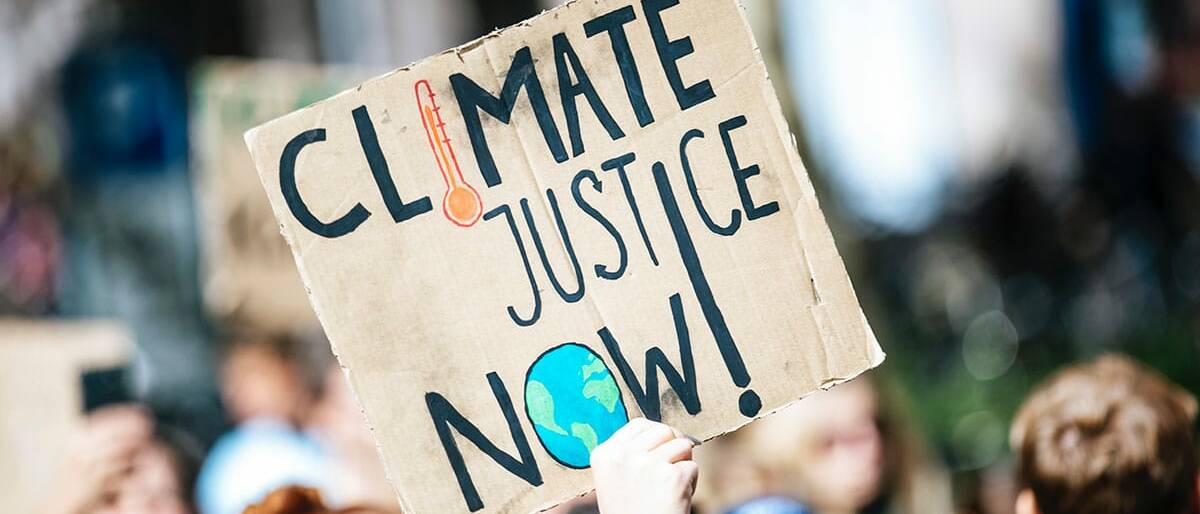
COP26: The choice of our lives
Opinion + AnalysisPolitics + Human Rights
BY Simon Longstaff 25 OCT 2021
There is such a thing as truth. It might be difficult to discern.
Aspects of the truth might vary depending on one’s perspective. However, there are some things that can be known with a certainty sufficient to guide practical action. One of those truths is that life is fragile. The more complex its form, the greater its vulnerability. In the web of life, the severing of one strand can lead the whole to unravel. Cataclysmic failure is not inevitable. It’s just possible – and that is worth knowing. Those who gamble with life take a mighty risk.
In ethics – facts matter. They really matter. Too often, they are ignored by those who think that good intentions are enough. By themselves, good intentions are not enough.
These and other matters are worth bearing in mind as a selection of the world’s leaders gather in Glasgow for COP26. The overwhelming consensus of the world’s leading climate scientists is that life-as-we-know-it is imperiled by the cumulative effects of greenhouse gases. We, humans, are the major source of those emissions. We are the most powerful force on this planet. Our choices shape and make the world what it is.
Ethics is about how these choices are made. It identifies and examines the drivers of choice and ultimately helps us to discern what is good or bad, right or wrong, in the choices we make. At its most fundamental level, ethics underpins the world we make.
So, in every respect, what happens in Glasgow is a matter of ethics.
It is also a matter of politics – and this is where the divorce between ‘ethics’ and ‘politics’ is a cause for concern. The division was never intended to be as great as it has become. For Aristotle, ‘ethics’ and ‘politics’ were intended to be two sides of the same coin. Ethics was concerned with questions about the good life for an individual. Politics was also concerned about questions to do with the good life – but as applied to the community as a whole.
In the lead up to COP26 in Glasgow, we have witnessed a very partial kind of politics that has no apparent concern for the national interest. Instead, the debate about climate change has been recast as a contest between country and city.
In prosecuting their case, the National Party has sought to remain part of the national government while simultaneously trashing the most basic obligation of governments: that they govern for the sake of all.
I should make it clear that when it comes to climate policy, the Ethics Centre has been one of the earliest and most steadfast advocates for a just and orderly transition to a more sustainable future – for everyone affected, not just those living under the National Party’s wing.
The attempt to weaken Australia’s position in Glasgow hinges on a couple of arguments. First, the claim is made that anything Australia does to reduce its contribution to global warming will be ‘futile’ – as our national impact is tiny in comparison to major polluters such as China and India. Second, it is argued that the cost to the economy is just too great to bear – especially for those working in ‘climate exposed’ industries. The National Party then adds to this critique by stating that people living in the cities are asking their country cousins to carry a disproportionate share of the burden.
History reveals what is wrong with such arguments. For example, consider the decision, by a Labor Government, unilaterally to slash tariffs and embark upon an ambitious program to promote free trade. The decision to do so was grounded in a commitment to the national interest and the reasonable belief that, in the long term, the benefits would outweigh the costs – and be shared by all. Back then (as now), Australia represented only around 3% of global trade. In that sense, slashing Australian tariffs could have been presented as a ‘futile gesture’. After all, why cut tariffs in advance of the world’s major economies? And that argument was made by those who opposed trade liberalisation at the time – the Coalition parties.
So, who are the major beneficiaries of free trade? It is the people whom the National Party claims to represent; those working in agriculture, mining and minerals. Who paid the price? Hundreds of thousands of people who lost their jobs in manufacturing – mostly in industries like textiles, clothing, footwear, automotive, etc. And where did most of these people live? In metropolitan areas. So it has been ever since. Australia’s free trade deals inevitably aim to maximise the incomes of people living in rural and regional Australia while leaving the price to be paid by people living in the cities.
Have we heard anyone from the National Party offering sympathy for those who have paid such a high price for regional prosperity? Not a word. Indeed, not a word from anyone. Why the silence? Well, you could put it down to political indifference. Or, it could be that there is now a broad consensus that despite the pain of transition (which typically has been disorderly and unjust), the national interest has been served.
Which brings us back to Glasgow.
Nearly everyone – other than the Federal Government – seems to agree that, for Australia, Glasgow presents a golden opportunity. The adoption of strong, binding targets could enable Australia to become one of the most prosperous nations the world has ever known. We have access to unlimited renewable energy, vast natural resources, a stable socio-economic environment, educated people and so on. We have everything needed to prosper. Indeed, just as it was in Australia’s national interest unilaterally to cut tariffs and embrace free trade, so it is in our national interest to embrace ambitious climate targets – not just for 2050 but by 2030. The stronger the drivers, the better the longer-term outcome.
Yet, even as I write these words, I wonder if this is to miss the point?
As noted above, Aristotle thought ‘ethics’ and ‘politics’ should concern themselves with questions about the ‘good life’. But for whom? For people in the bush? For Australians? For humanity? Or is our duty to ‘life’ itself? Is not the truth about global warming’s threat to life on this planet the ultimate ethical foundation upon which to build strong commitments in Glasgow?
When it comes to life on this planet, there is no ‘town’ and ‘country’, no ‘Coalition and ‘Labor’, no ‘Us’ and ‘Them’. We are all in this together.
I realise that politics is the ‘art of the possible’ – and that the average politician is acutely sensitive to the sentiments of their electorate. However, there are times when, at their best, politicians enlarge our possibilities and in doing so, lead their electorate to a better place. This is why politics used to be considered the most noble calling of a citizen.
Our Prime Minister, Scott Morrison, has been wrestling with a form of politics that falls well short of that ideal. It is open to him to choose something better. That is both the gift (and curse) of his humanity. In Glasgow we will see not only what kind of politician Scott Morrison can be on our behalf. We will also get the measure of his capacity to lead. But most importantly, he will reveal the character of his humanity.
Ethics in your inbox.
Get the latest inspiration, intelligence, events & more.
By signing up you agree to our privacy policy
You might be interested in…
Opinion + Analysis
Climate + Environment, Politics + Human Rights
Who is to blame? Moral responsibility and the case for reparations
Big thinker
Politics + Human Rights, Relationships
Big Thinker: Michel Foucault
Big thinker
Politics + Human Rights
Big Thinker: Peter Singer
Big thinker
Politics + Human Rights
Big Thinker: John Locke
BY Simon Longstaff
Simon Longstaff began his working life on Groote Eylandt in the Northern Territory of Australia. He is proud of his kinship ties to the Anindilyakwa people. After a period studying law in Sydney and teaching in Tasmania, he pursued postgraduate studies as a Member of Magdalene College, Cambridge. In 1991, Simon commenced his work as the first Executive Director of The Ethics Centre. In 2013, he was made an officer of the Order of Australia (AO) for “distinguished service to the community through the promotion of ethical standards in governance and business, to improving corporate responsibility, and to philosophy.” Simon is an Adjunct Professor of the Australian Graduate School of Management at UNSW, a Fellow of CPA Australia, the Royal Society of NSW and the Australian Risk Policy Institute.
Power and the social network

In science, power has a very precise definition. It is the rate at which energy is being transferred – a relationship that is captured in a formula and can be thought of more informally as the amount of “work” being done.
So, in a scientific context – specifically physics, the meaning of power is clear. In contrast, power is a far more complex concept in social sciences – as revealed within a diverse range of human interactions.
There are two prevailing views on the nature of power. The first regards power predominantly as a tool for subjugation, while the second acknowledges its potential for harmful use while also pointing to its potential role in maintaining balance.
Thomas Hobbes championed the first notion, conceptualising one man’s gain in power as another man’s loss. A straightforward illustration of this can be seen in a wrestling match where two people compete, with one eventually winning. That outcome is incompatible with both having equal power. Even if they do so initially, a relative increase in power eventually accrues to the victor.
The second perspective on power is provided by Michel Foucault, who considered its nature to be more subtle and varied. He proposed that power assumes many forms and is invested in many things. This latent power only arises when an individual engages in conversation around ‘regimes of truth’ or understanding. Foucault’s definition of power is thus more charitable. He thinks of power as an entity that resides in all things rather than a structure through which people/things can mobilise control. He notes that power is synonymous with knowledge and fact.
In older structures, such as government and politics, it’s challenging for an individual to lose power entirely. A benefit of having power is that can enhance the credibility and longevity of a person’s philosophy. Even though someone may lose their position and ability to make decisions in government, they often retain their power to exercise influence within their social circles provided their personal credibility remains intact. This is how ‘informal’ power (influence) can shape the exercise of formal power.
This permanence of power is an important determinant of the behaviour of those in power. Confidence in the enduring nature of power (and its ability to ward off adverse consequences) often leads the powerful to make choices that advance their personal interests.
Social media has begun to redefine the nature of power. The dominant platforms have gained tremendous traction over the past decade, and gradually personal identity has become synonymous with online presence. Widespread fame and the attainment of a quasi-celebrity status has given key ‘influencers’ the ability to exercise ‘informal’ (but none the less real) power through the vector of their online followers. But social media fame is even more fickle than that gained through traditional means as its basis is intrinsically unpredictable.
As such, social media provides some useful insights into the new dynamics of power within a technological setting. For example, in the case of social media, power is actually being exercised by those who offer a response to what ‘influencers’ post. When you use social media, you use and direct your power through likes and comments offered in response to what has been posted. However, if you disapprove of something you’ve observed, you can withhold your endorsement or even actively express your disdain through dislikes and critical comments – in other words actively withdrawing your support can be part of a conscious act to diminish the power. So, where does power lie? With the influencers or their potentially fickle followers?
The technology that underpins social media platforms has also ‘democratised’ power in that almost anyone can gain a following and thus have the potential to exert a degree of influence.
It’s much easier now to establish a position of power online than it was traditionally – because of ease of access and the fact that there is no limit to the number of people who can have a platform and broadcast their views widely.
But this increase in access to power is a double-edged sword because, as quick as it is for someone to gain power through today’s media, they can just as easily lose it.
As a result, many ‘celebrities’ have short-lived fame. The fleeting nature of power has extended beyond the realm of social media into the offline world. For example, the twenty-four-hour media cycle and the need to feed an insatiable media ‘beast’ means that politicians now operate under an intense and unceasing public gaze. Even the slightest whiff of scandal can end a career – and end access to a formal source of power.
In modern societies, scrutiny drives and confers power by facilitating influence.
Online power is probably best conceptualised as a mixture of Foucault’s and Hobbes’ descriptions of power.
Overall, we see how our old structures of power perhaps do not adapt easily to the online world. The reachability and balance of the internet make it easier to comment on those in power and hold them accountable for their actions. Ultimately, the dynamic is shifting; while the factors that give people power – influence, connection, and money – remain prevalent on the internet, the power they generate is no longer as enduring.
Ethics in your inbox.
Get the latest inspiration, intelligence, events & more.
By signing up you agree to our privacy policy
You might be interested in…
Explainer, READ
Relationships, Society + Culture
Ethics Explainer: Shame
Big thinker
Relationships
Big Thinker: Plato
Opinion + Analysis
Health + Wellbeing, Relationships
The Ethics of Online Dating
Opinion + Analysis
Health + Wellbeing, Relationships








